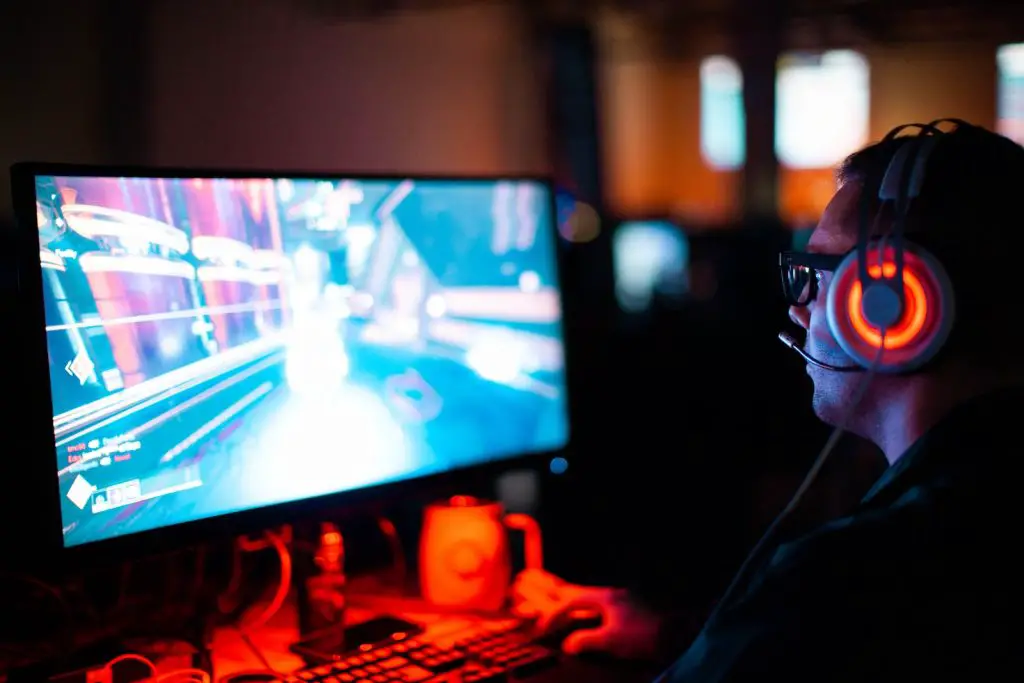This post may contain affiliate links which means I may receive a commission. Learn more on my Privacy Policy page.
How Gaming Can Help With Mental Health Conditions
Gaming may seem like an escape or addiction, but when played responsibly it can enhance socialization and help reduce stress levels. Some games even encourage player interaction through global communities in fast-paced game settings.
Contrary to popular belief, video games can actually aid with mental health conditions. Let’s explore why.
Social Interaction
Playing video games together can be an enjoyable social activity when gamers come together and share their passion for a particular game. Gaming communities may host events to bring players together face-to-face and bond over their love of a specific title; when done responsibly this can be an enjoyable way to reduce stress while socializing in moderation. When gaming becomes an addiction, however, it can cause people to withdraw from other social activities in favor of staying indoors glued to screens instead of socializing in real life – read about how to recognize when gaming has gone from hobby status into all-consuming compulsion in our What is unhealthy Gaming section.
Gamers can build relationships with players all around the world through online gaming, which can reduce loneliness while providing children and teenagers a shared activity they can enjoy. Many US residents have found long-term partners through multiplayer gaming experiences, disproving stereotypes that gaming can only be an antisocial activity. Gaming also shows its potential as a social experience!
Playing games with your friends can also improve cognitive function and coordination, since gamers must often think fast and multitask to complete levels in a video game. Furthermore, repetitive actions in first-person shooter games such as FPS can develop spatial awareness and reaction times.
Relieve Stress
Video games can be an excellent way to de-stress. Immersion into a game keeps people’s thoughts off other things while they enjoy themselves, which in turn reduces feelings of stress. But it should be remembered that gaming should only ever be used as an enjoyable pastime – not as an escape from life! If gaming becomes used as an emotional release tool then problems may ensue.
Multiplayer games offer an effective way to combat stress. By developing relationships with other gamers they can rely on and communicate with in the virtual world, multi-player gaming helps individuals build friendships while learning the importance of working together as they try to win a game – something which has many mental health benefits.
However, gamers should still keep in mind that playing alone or for extended periods can still cause stress and strain in life. Any feelings such as anger, frustration, sadness or fear that may arise while they play can have an adverse effect on them while they’re playing video games – should this become an issue, seeking professional assistance should help address them in healthier ways than just turning to video games as an escapism method.
Reduce Anxiety
Gaming can be extremely beneficial to many individuals in moderation; however, it should never serve as a replacement for mental health services. Gaming has been shown to reduce stress and anxiety for those struggling with depression and anxiety – sometimes more effectively than traditional therapy methods!
One reason is because gaming provides a safe space to practice social interaction skills and self-control, problem-solving abilities, and emotional regulation. Gaming also helps create a sense of community among its participants – this is particularly evident with multiplayer or cooperative play games.
First-person Shooters (FPSs) can also aid in trauma recovery as they give users a virtual exposure therapy experience similar situations that cause distress – this form of virtual exposure therapy is known as empathy training.
As with any activity, video gaming may present both benefits and risks. If gaming becomes problematic for you, it is essential to consult a healthcare provider and establish ways of better managing your time. It may also be wise to balance gaming with other activities or hobbies like exercise or socialization.
Increase Cognitive Function
Video games have long been recognized by psychologists as effective way of improving brain function. Playing them has been shown to enhance hand-eye coordination, spatial cognition and multi-level problem solving abilities – even encouraging socialization among players from around the globe through multiplayer gaming experiences. Furthermore, these skills are useful in real life settings such as depression or PTSD treatment.
Recent research revealed that commercial video games designed purely for entertainment may actually possess therapeutic value, particularly among adolescent and adult players. Such video games could serve to break down stigma surrounding mental illness while offering affordable care without stigma for those most in need.
Research also indicated that as people play more video games, their skill at it improves. This is likely due to how games recruit and develop specific cognitive processes which then transfer over into other areas where these processes are required, for example improving reaction times through rapid decision-making games; physical rotation improving perspective recognition skills; counting games helping with object spotting; etc.
Nearly any type of video game can help improve mental health if used in moderation, however it is essential that limits are set so you do not become addicted. If you find that too much time is being spent playing video games it would be prudent to seek the advice of a mental health professional.
For more, check out our post about game design and decision making within video games!




